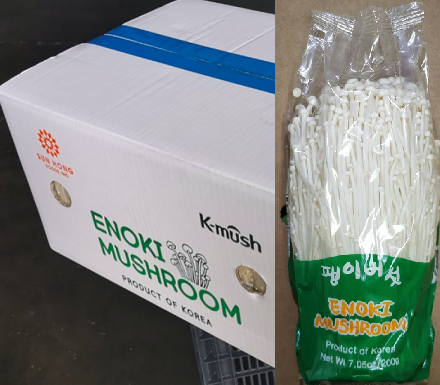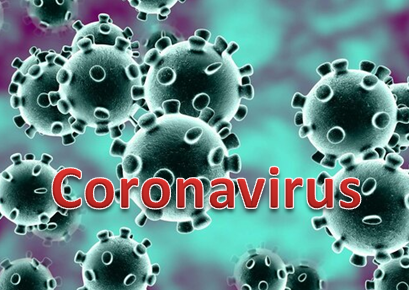The CDC reported that as of March 9, 2020, 36 people infected with the outbreak strain of Listeria monocytogenes have been reported from 17 states (Arizona 2, California 9, Florida 2, Hawaii 3, Indiana 1, Kentucky 1, Maryland 2, Massachusetts 2, Michigan 1, Missouri 1, Nevada 1, New Jersey 1, New York 4, North Carolina 1, Rhode Island 1, Tennessee 1, and Virginia 3). Thirty hospitalizations have been reported. Four deaths have been reported from California, Hawaii, and New Jersey. Six pregnancy-associated cases have been reported, of which two resulted in fetal loss. Epidemiological and laboratory evidence indicates that Enoki mushrooms are most likely the source of the outbreak. Sun Hong Foods, Inc. had recalled the product because due to Listeria monocytogenes bacteria.WGS showed that bacteria isolated from ill people were closely related genetically. Two samples of Enoki mushrooms yielded the outbreak strain of Listeria monocytogenes. @ https://www.cdc.gov/listeria/outbreaks/enoki-mushrooms-03-20/index.html
ruth
Outbreak of Listeria Infections Linked to Enoki Mushrooms
ruth
Sun Hong Foods, Inc recalled all of Cases Enoki Mushroom imported from Korea because it has the potential to be contaminated with Listeria monocytogenes. The product was distributed in CA, TX, OR, WA, TX, IL, and FL. The products were sold in Asian Supermarkets, J&L Supermarket, Jusgo Supermarket, ZTao Market, New Sang Supermarket, and Galleria Market. Enoki mushrooms are white and packaged in a White Cardboard Box with 25 packages of 200g. Sun Hong Foods became aware of contamination after being notified by the FDA that samples of the product tested by the State of Michigan tested positive for Listeria monocytogenes. No illnesses were reported due to this product. @ https://www.fda.gov/safety/recalls-market-withdrawals-safety-alerts/sun-hong-foods-inc-recalls-enoki-mushroom-because-possible-health-risk?utm_campaign=Sun%20Hong%20Foods%2C%20Inc.%20Recalls%20Enoki%20Mushroom%20Because%20of%20Possible%20Health%20Risk&utm_medium=email&utm_source=Eloqua
Sun Hong Foods, Inc 1105 W Olympic Blvd, Montebello, CA 90640 is recalling All Cases Enoki Mushroom (Product of Korea) Net Wt 7.05/200g because it has the potential to be contaminated with Listeria monocytogenes
ruth
In response to the COVID-19 outbreak, the FDA is postponing most foreign inspections through April outside of the US due to travel restrictions. The FDA has confidence in its ability to maintain oversight over international manufacturers and imported products using alternative tools and methods, including monitoring products at the border, review of importer compliance, and sharing of information with foreign governments. The FDA, through its risk-based import screening tool (PREDICT), will focus examinations and sample collections based on heightened concerns of specific products being entered into US commerce. @ https://www.fda.gov/news-events/press-announcements/coronavirus-disease-2019-covid-19-update-foreign-inspections?utm_campaign=031020_PR_Coronavirus%20%28COVID-19%29%20Update%3A%20Foreign%20Inspections&utm_medium=email&utm_source=Eloqua
Coronavirus Update: Foreign Inspections
ruth
The FSIS (Food Safety and Inspection Service) conducted a baseline study from 1 June 2017 through 31 May 2018 to characterize and determine the prevalence of Salmonella and assess the occurrence of Shiga toxin-producing Escherichia coli (STEC) in a variety of raw pork products. 4,014 samples from slaughter and processing plants were analyzed for Salmonella, and 1,395samples from slaughterhouses were also analyzed for STEC. FSIS determined that the national prevalence of Salmonella in raw pork products was highest in comminuted products (28.9%), followed by intact cuts (5.3%) and nonintact cuts (3.9%). Less than 1% of the samples analyzed were positive for the top seven STEC. The results indicated that steps in the processing of raw pork into comminuted products allow pathogens to survive or grow despite current pathogen reduction strategies. The data from the study suggest that the presence of aerobic count and E. coli are not correlated with the presence of pathogens. 32.8% of all Salmonella isolates in the study belong to serotypes Anatum, Infantis, and I 4,[5],12:i:−. Most of the antibiotic resistance genes carried by I 4,[5],12:i:− were antibiotics used in the treatment of human infections. The low frequency of the top seven STEC recovered, and the limited epidemiologic evidence that pork-associated infections indicate that this pathogen may not be a significant food safety concern in raw pork. Additional research is needed to understand the full range of STEC serotypes present in raw pork products.@ https://meridian.allenpress.com/jfp/article/83/3/552/426177/Salmonella-and-Shiga-ToxinProducing-Escherichia




